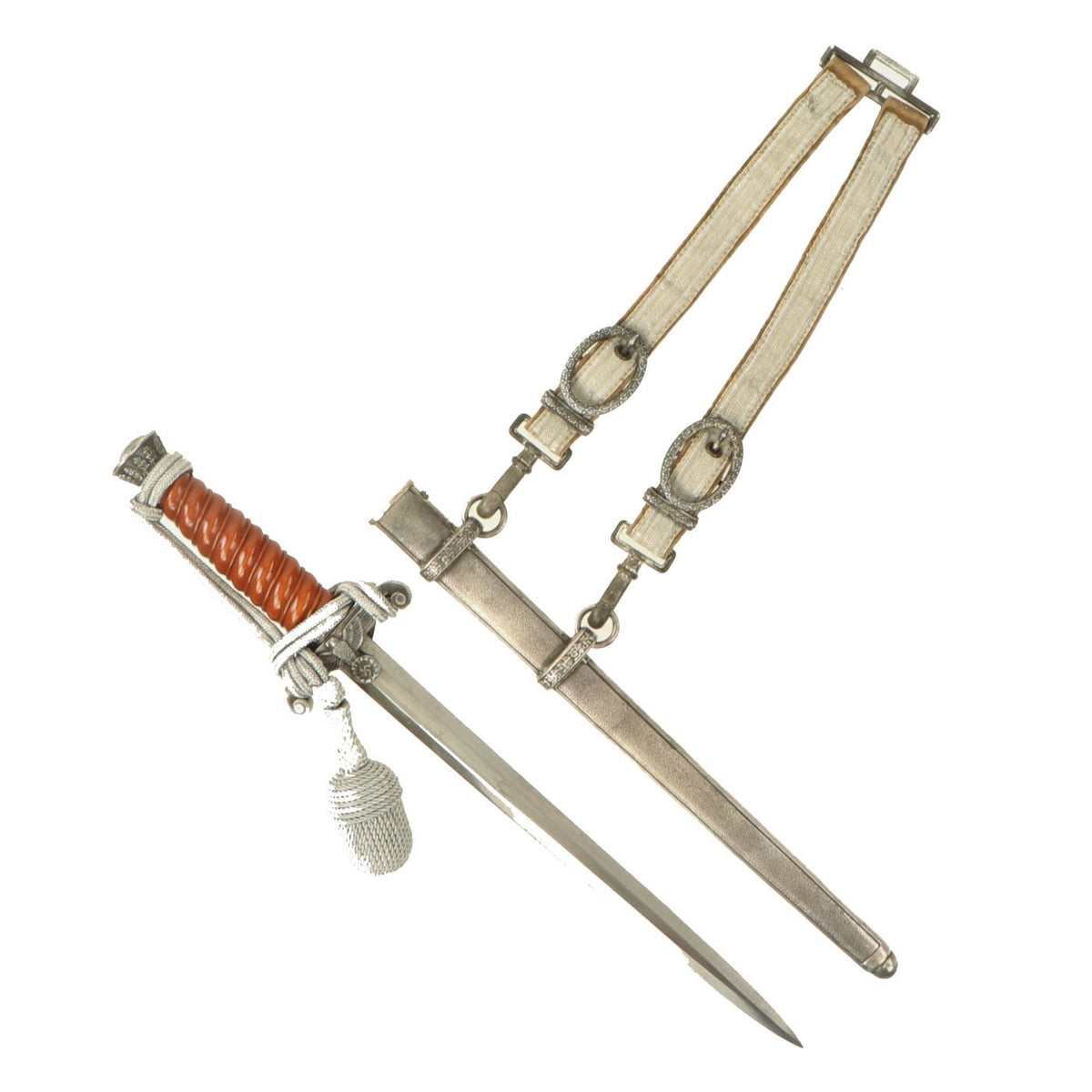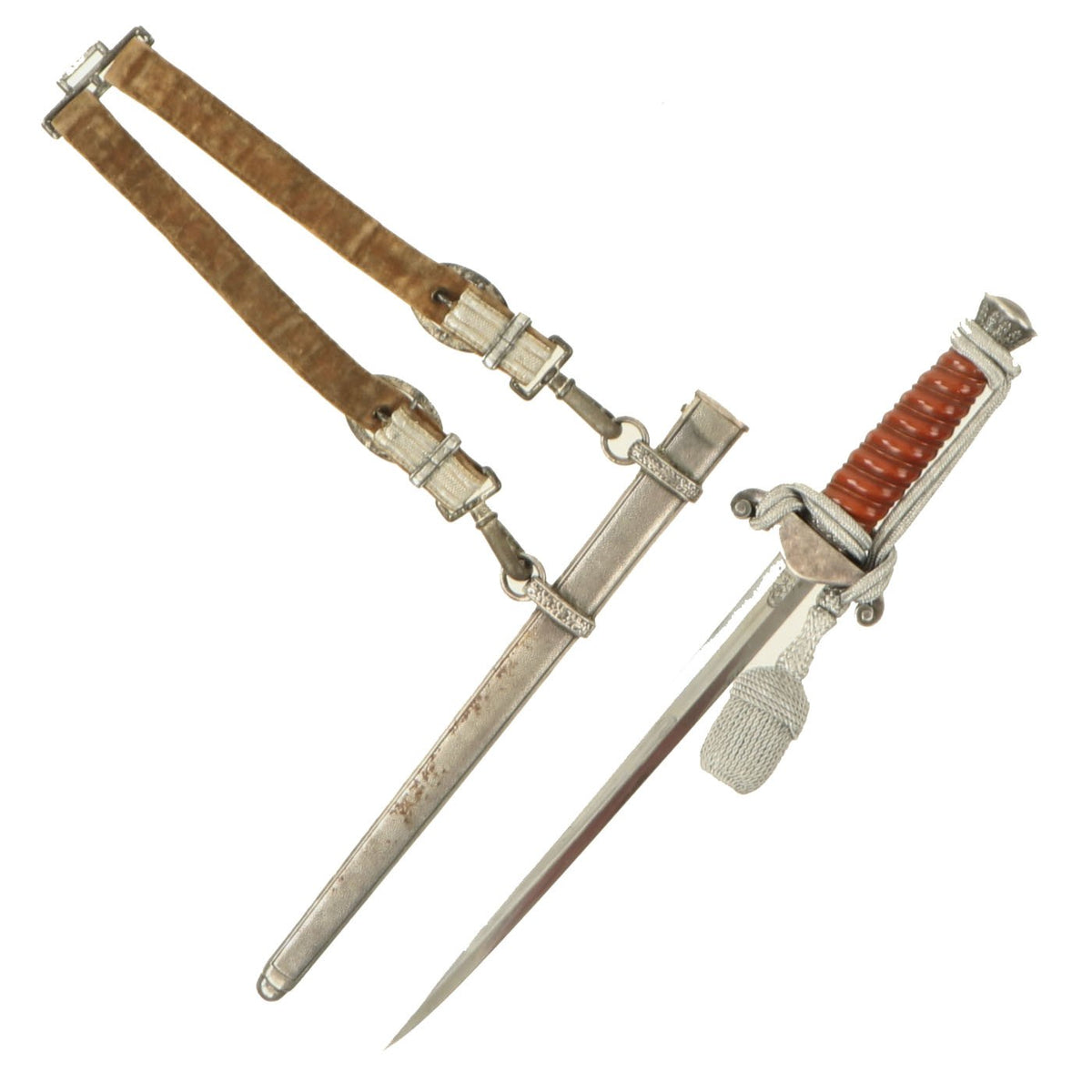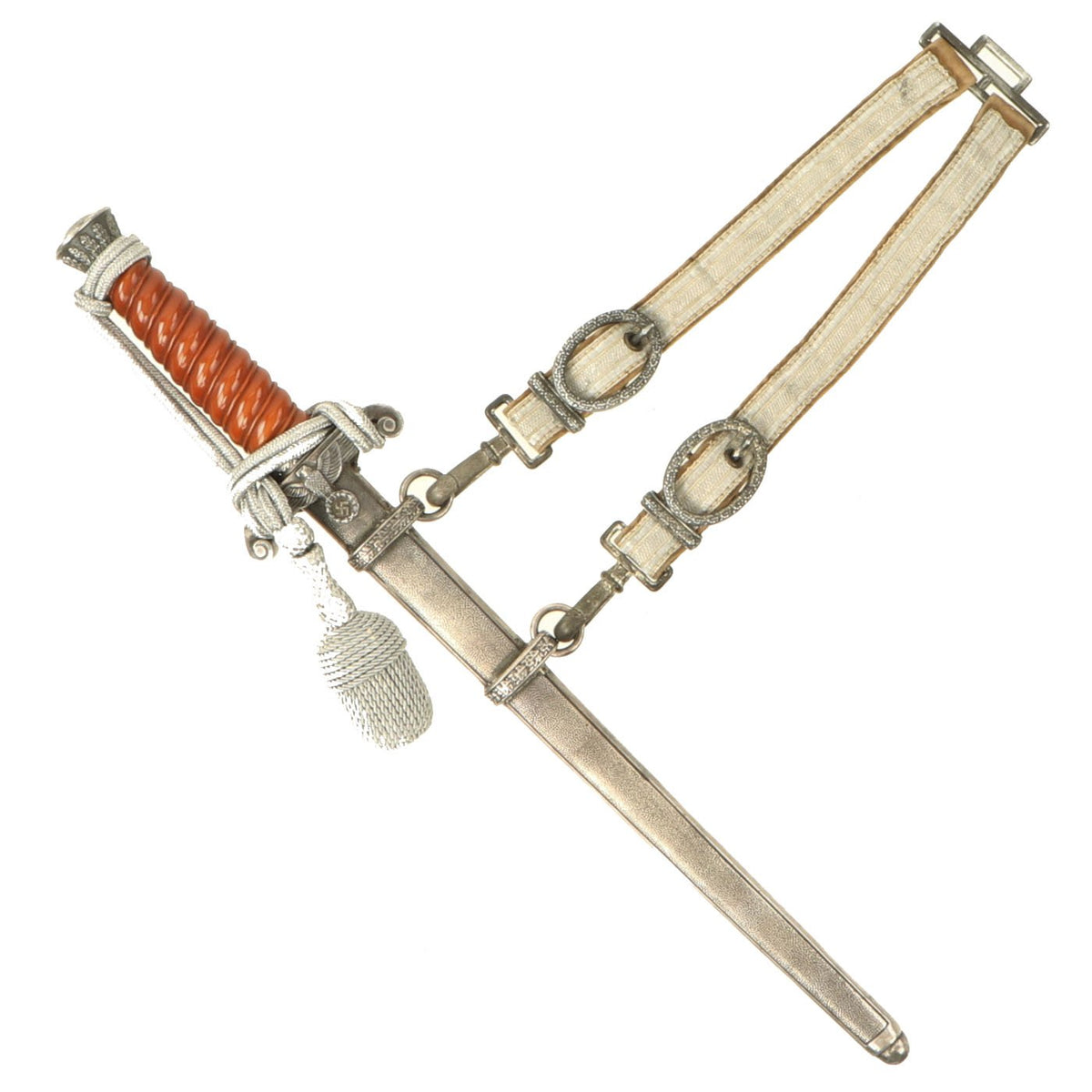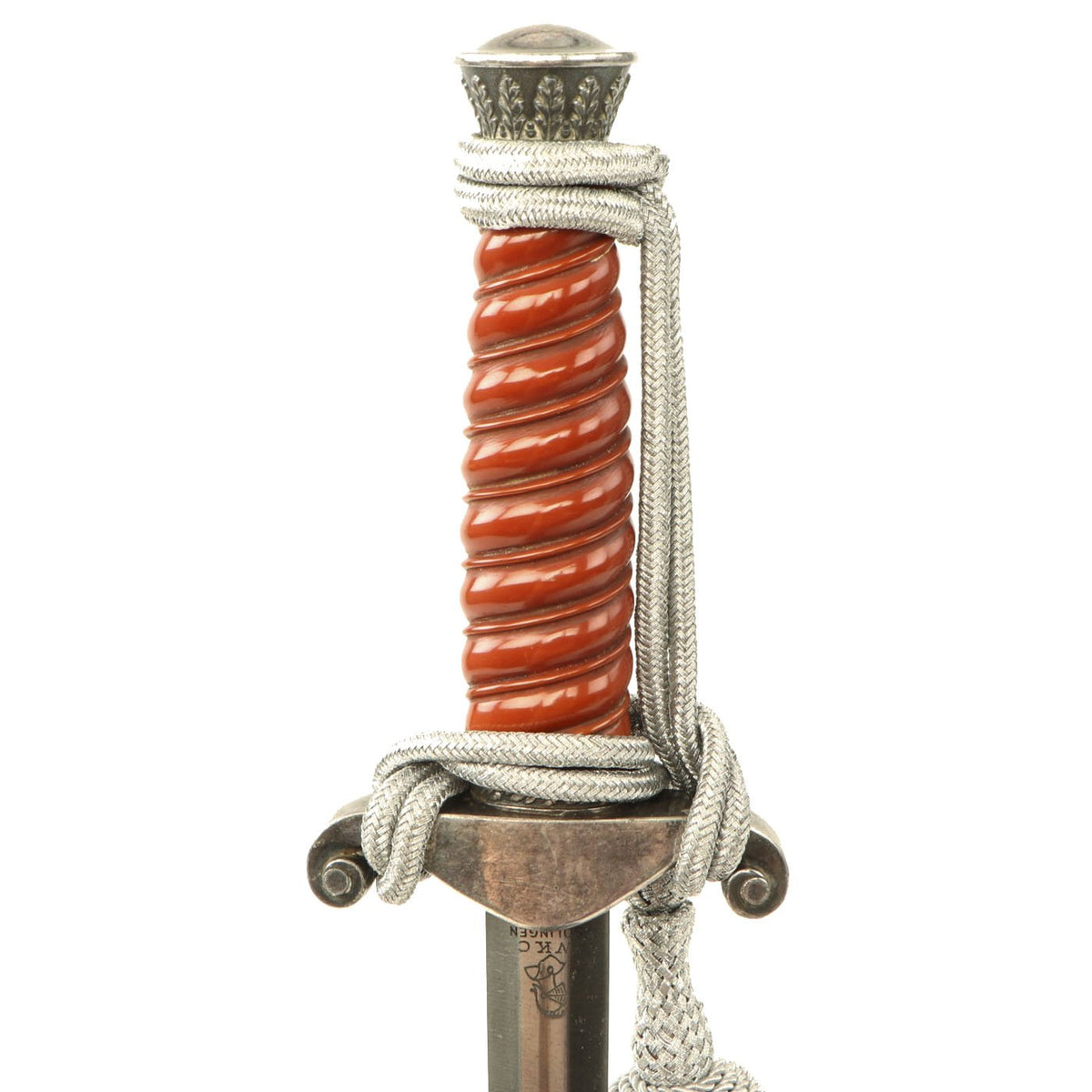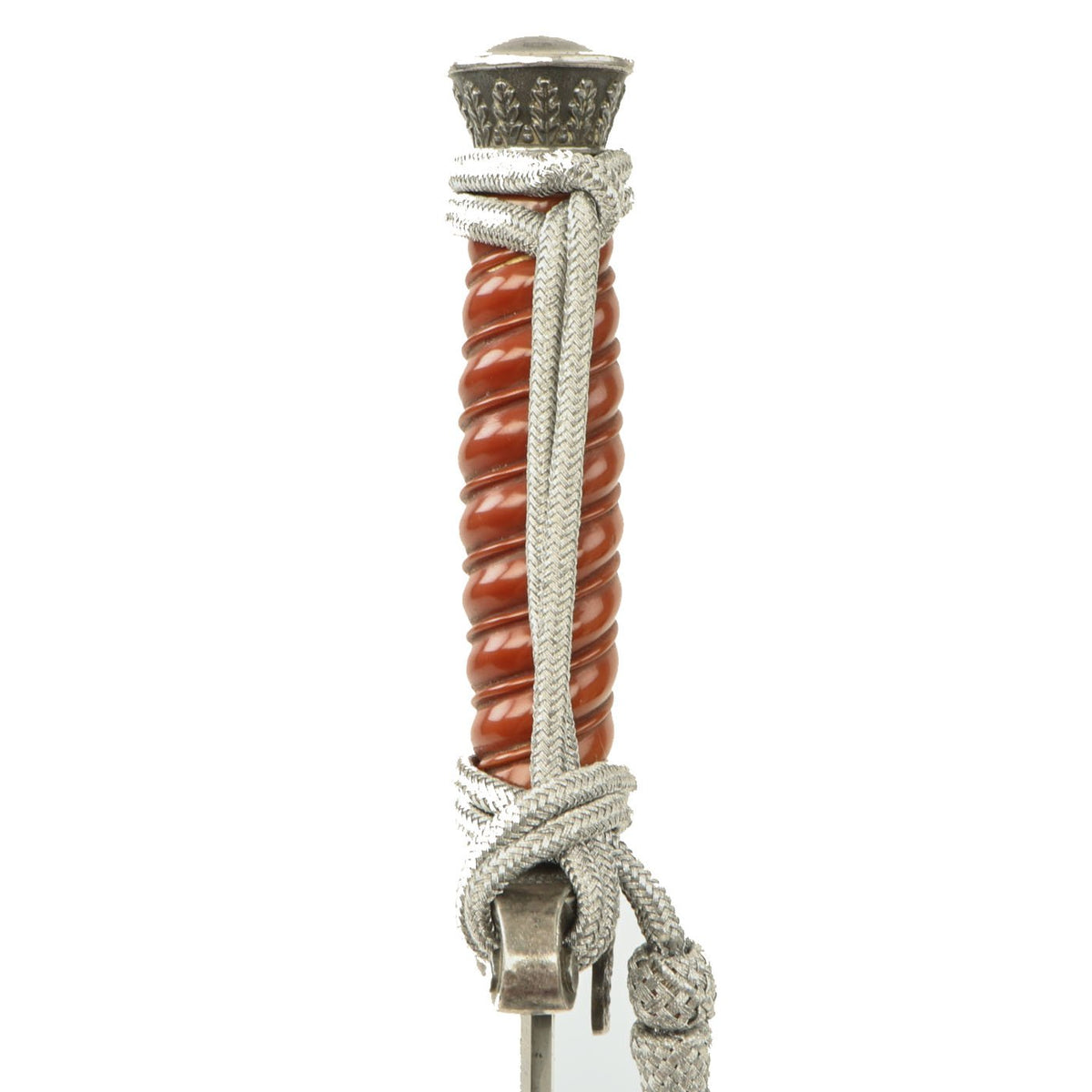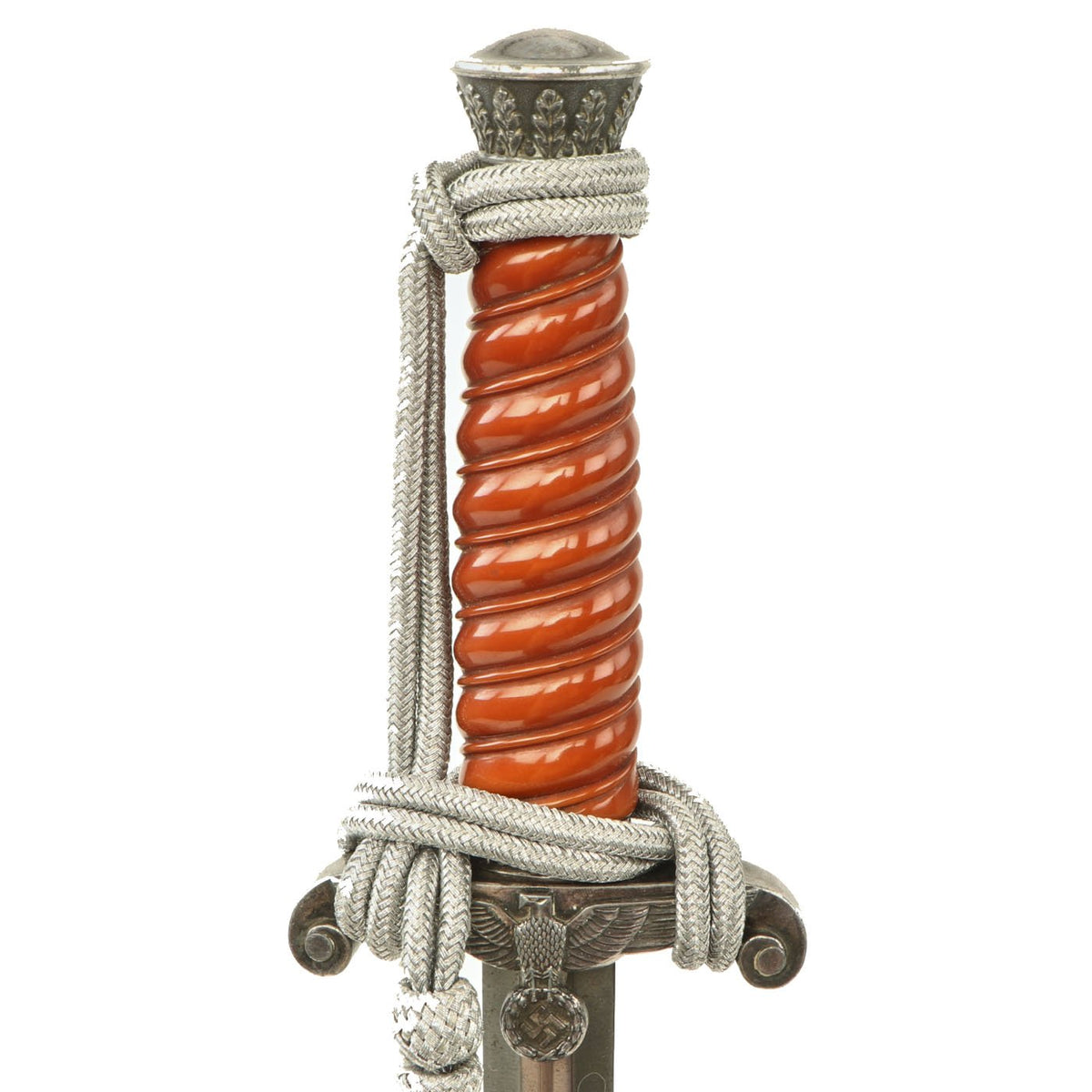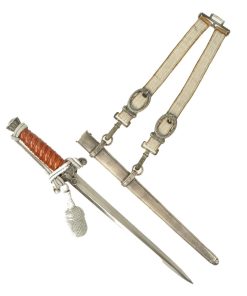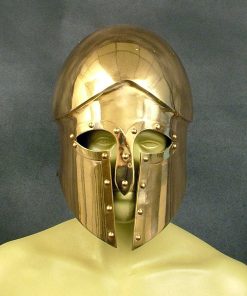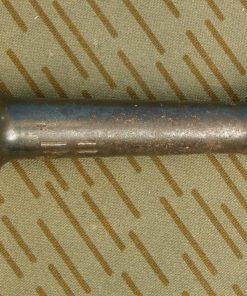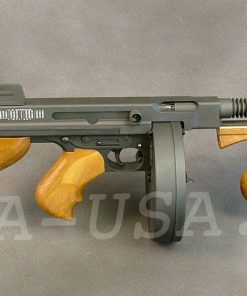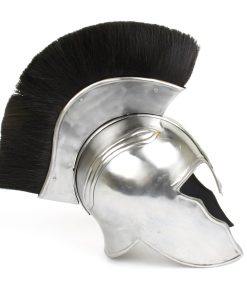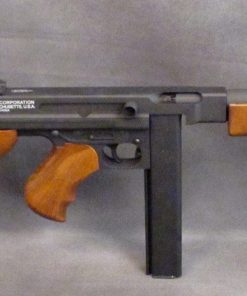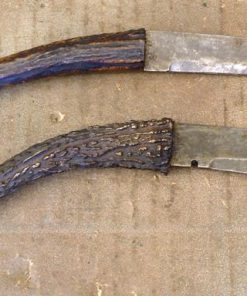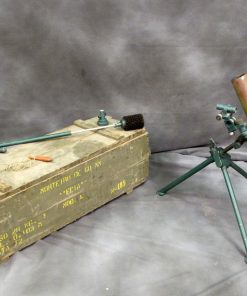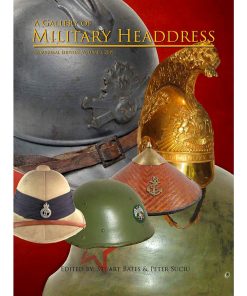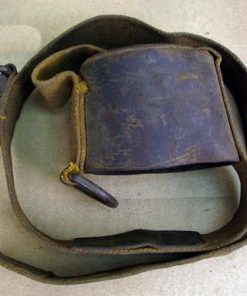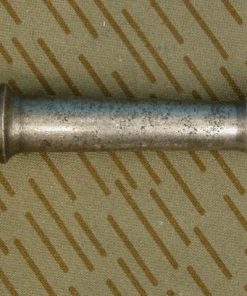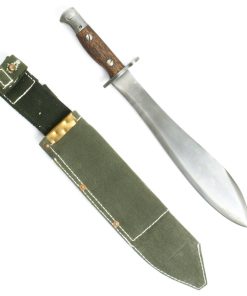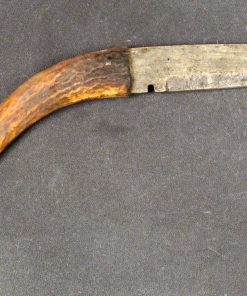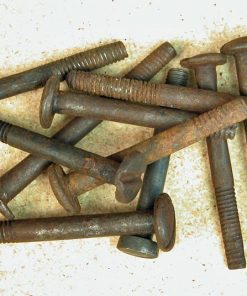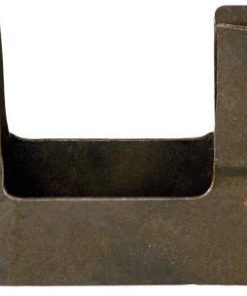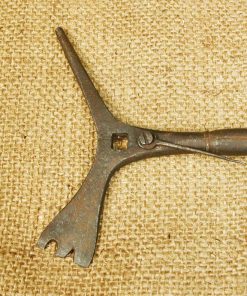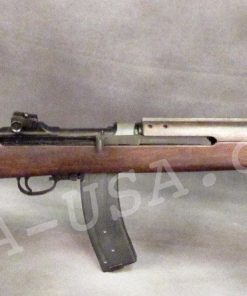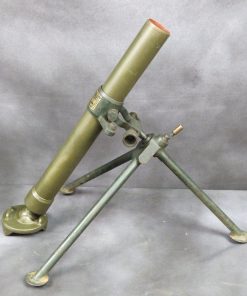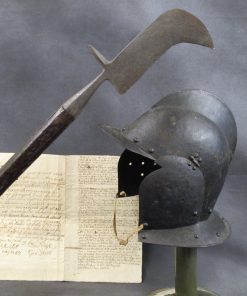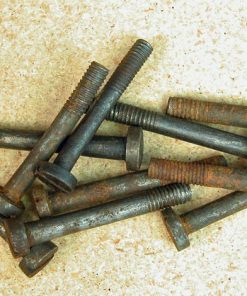Original German WWII Army Heer Officer Dagger by Weyersberg Kirschbaum & Cie with Hanger and Portepee Original Items
$ 895,00 $ 223,75
Original Item: Only One Available. This is a very nice Army Officer’s Dagger, produced by the legendary Solingen-based firm of Weyersberg Kirschbaum & Co., a highly desirable maker of edged weapons. The pommel of this dagger is in very good condition, showing a little wear and scratching around the edge, with some loss of plating. The plating elsewhere is almost entirely present, with a great patina and lovely darkening on the oak leaf side panel.
The silver plated crossguard is in similar condition, with almost all of the plating intact, with a great patina. The details throughout the characteristic WKC eagle are exceptional throughout the head, breast and wing feathering, talons and wreathed mobile swas. The grip ferrule is also silver-plated, and is in good condition with some wear, having been protected by the portepee.
The grip is has faded to a nice dark pumpkin orange, typical of celluloid grips from this period. This grip is in almost perfect condition throughout, with just a bit of staining and wear. Wrapped around the grip and cross guard is an original aluminum bullion thread portepee (sword knot), tied in the Heer fashion. It is in very good condition as shown, with minimal fraying and only a bit of wear.
The very good condition blade is mostly bright throughout, showing almost all of the original cross grain. The tip is still intact, with no bending, just some light wear. Overall finish does show some speckled staining in a few places, though the edge is still nice, with no major chips or sharpening. There is the usual runner wear on the blade surface, however this is present on just about every dagger out there.
The reverse ricasso is etched with the trademark “Knights-Head” (Ritter-helm) logo of legendary maker Weyersberg Kirschbaum & Cie of Solingen, over the firms initials of WKC / SOLINGEN. This company is a famous manufacturer of military swords and cutlery in Solingen, Germany – a city famous since the middle ages for its metal-working and craftsmanship in sword making. Per J. Anthony Carter’s fine work GERMAN SWORD AND KNIFE MAKERS, the traditional manufacturing of swords at WKC dates back to the year 1774 when the Weyersberg first registered the ”Kings head” as their trademark. Later in 1883 the company merged with the Kirschbaums and the company WKC was formed as it exists today.
The scabbard is a fine WKC example, and is plated steel. This straight scabbard has very crisp, finely grained panels. The carrying bands have an excellent pattern of overlapping oak leaves and acorns, which are nicely enhanced, though they do show wear. The throat is the thinner style, and has a single securing screw on the side of the scabbard. It is silver or nickel plated, and has a lovely oxidized look. There is not really any flaking we can see, just the usual wear and light patination, making this a great example.
Attached to the scabbard is a very good condition belt hanger, with functional pebbled spring clips with a great patina. The buckles and keepers are engraved with the same oak and acorn motif seen throughout the dagger. The straps are in very good condition, with the brown velvet on the back well retained, and the silver bullion front side showing light wear. There is some oxidation on the fittings, but that is to be expected. There are no signs of any type of repairs on the hanger.
A very nice example from a legendary maker, ready to display!
Specifications:
Blade Length: 9 1/2″
Blade Style: Spear Point Dagger
Overall length: 14“
Crossguard: 2 3/4”
Scabbard Length: 11 1/8″
The German Army (Heer) first carried a dagger beginning in 1935. The weapon was worn in lieu of occasions not demanding the wearing of a more formal sword. The dagger design was quite attractive featuring silvered heavy fittings with white or colored grip. The crossguard depicted a Wehrmacht open-winged eagle clutching a wreathed swas.
The pommel depicted oak leafing around the outer circumference. The scabbard had panels of pebble designs. Later produced examples were plated with nickel, and late war-made pieces were unplated, finished in a gray color metal. These daggers are often encountered with an aluminum portepee.
Fast Shipping with Professional Packaging
Thanks to our longstanding association with UPS FedEx DHL, and other major international carriers, we are able to provide a range of shipping options. Our warehouse staff is expertly trained and will wrap your products according to our exact and precise specifications. Prior to shipping, your goods will be thoroughly examined and securely secured. We ship to thousands clients each day across multiple countries. This shows how we're dedicated to be the largest retailer on the internet. Warehouses and distribution centres can be located throughout Europe as well as the USA.
Note: Orders with more than one item will be assigned a processing date depending on the item.
Before shipping before shipping, we'll conduct a thorough inspection of the items you have ordered. Today, the majority of orders will be delivered within 48 hours. The delivery time will be between 3-7 days.
Returns
The stock is dynamic and we cannot completely manage it because multiple stakeholders are involved, including our factory and warehouse. So the actual stock may alter at any time. It's possible that you may not receive your order once the order has been made.
Our policy is valid for a period of 30 days. If you don't receive the product within 30 days, we are not able to issue a refund or an exchange.
You can only return an item if it is unused and in the same state as the day you received it. You must have the item in its original packaging.
Related products
Uncategorized
Uncategorized
Uncategorized
Uncategorized
Uncategorized
Uncategorized
Uncategorized
Uncategorized
Uncategorized
Armoured Fighting Vehicles of the World: AFVs of World War One (Hardcover Book) New Made Items
Uncategorized
Uncategorized
Uncategorized
Australian WWII Owen MK1 Machine Carbine SMG Custom Fabricated Replica with Sling Original Items
Uncategorized
Angolan Rebel 1970s era 60mm Inert Display Mortar from Angolan Civil War Original Items
Uncategorized
Armored Burgonet Helmet & Polearm from Scottish Castle Leith Hall Circa 1700 Original Items
Uncategorized
